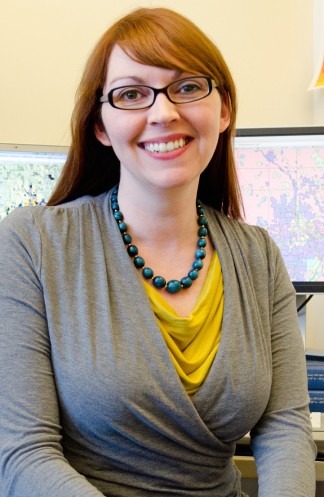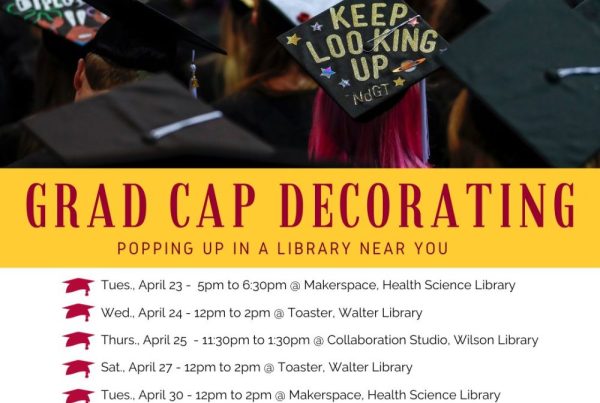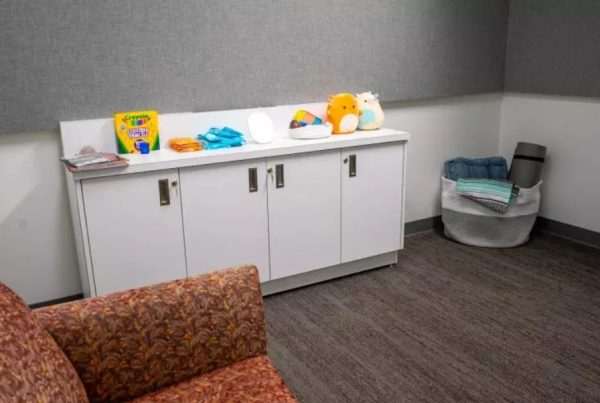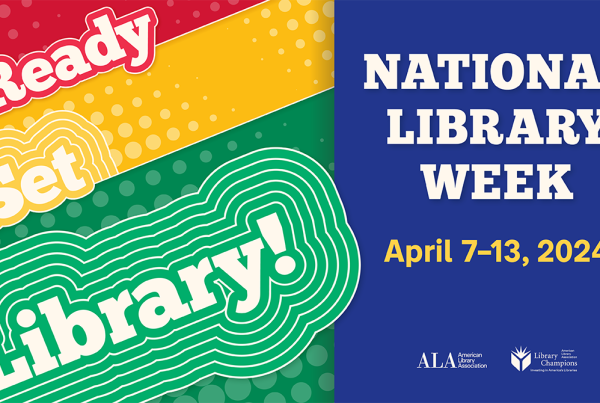In an effort to improve researcher support, the University of Minnesota Libraries will lead efforts to develop a network for sharing data curation resources and staff across six major academic libraries. The one-year project is funded by Alfred P. Sloan Foundation.
The Data Curation Network will develop a “network of expertise” model for data curation services that will enable academic libraries to collectively, and more effectively, curate a wider variety of data types – for example, by discipline and file format — that expands beyond what any single institution might offer alone. The goal is to better support researchers faced with a growing number of requirements to openly and ethically share their research data.
Currently, staff at each of the participating institutions provides data curation services, including preparing digital research data for open access and reuse.
The one-year project planning team, led by Lisa R. Johnston, Research Data Management/Curation Lead at the University of Minnesota Libraries, is charged with determining how to effectively implement, assess, and sustain a shared staffing model for providing data curation services.
Johnston, Principal Investigator, will be joined by:
- Jake Carlson, Research Data Services Manager, University of Michigan
- Patricia Hswe, the Digital Content Strategist at Penn State University
- Cynthia Hudson-Vitale, Digital Data Outreach Librarian, Washington University in St. Louis
- Heidi Imker, Director of the Research Data Service, University of Illinois at Urbana-Champaign
- Wendy Kozlowski, Data Curation Specialist, Cornell University
- Claire Stewart, Associate University Librarian for Research and Learning, University of Minnesota
The project team will actively monitor the metrics involved with curating data (such as duration, volume, skill sets utilized, and data type frequency) at the six academic institutions. The project outcomes will be posted publically on the team’s website.
The consortia will seek input from researchers to better understand how data curation services fit into their research workflow and data management needs through informal engagement activities held in parallel on each campus.
“We are particularly excited to receive this award as it addresses a pressing need not just for academic libraries but for researchers in all fields who need support in sharing their research data,” said co-collaborator Jake Carlson from the University of Michigan. Through this process the team will release findings on budgeting, staffing models, and workflows for data curation relevant to academic libraries.
Following this work, the project team will seek funding to implement this model as a fixed-term pilot of the Data Curation Network.
“We’re confident that we’ll be able to demonstrate a successful and attractive Data Curation Network model,” said Johnston. “And we believe that this will help build the network beyond our initial cohort and enable informed and sustainable services by libraries.”
For more information
Contact: Lisa Johnston
Project Coordinator
Data Curation Network
Visit the Data Curation Network website
Follow on Twitter: #DataCurationNetwork
Why is data curation needed?
Researchers are required by many federal and private funders and publishers to make the digital data underlying their research openly available for sharing and reuse. However, in order for data to be fully publicly accessible to search, retrieve, and analyze, specialized curatorial actions must be taken to best prepare these data for reuse including quality assurance, file integrity checks, documentation review, metadata creation for discoverability, and file transformations into archival formats.
Why are libraries involved with data curation?
Supporting researchers with data curation is an important role that academic research libraries aspire to fill as we transform our workforce to assume greater digital stewardship responsibilities in the academy.
Libraries are experts at identifying, selecting, organizing, describing, preserving, and providing access to information materials, print and digital. And as a cornerstone of the academic institution, libraries are persistent, with a demonstrated and sustainable model for providing services such as collection management, preservation, and access to a broad variety of information.





